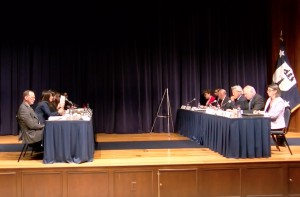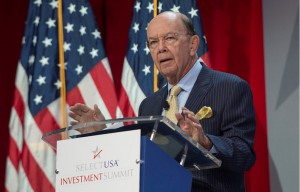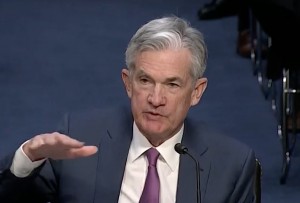
Representatives from six auto groups testified at a U.S. Department of Commerce public hearing against new tariffs proposed by President Donald Trump.
With one exception – the UAW – the automotive industry is prepared to take a united stand against tariffs as the U.S. Department of Commerce holds a one-day public hearing on a Trump administration proposal to levy 25% tariffs on imported automobiles in the name of national security.
Seven associations representing almost 10 million jobs across the auto sector in the U.S. have joined together to urge the White House to not impose higher tariffs on imported autos and auto parts.
“Raising tariffs on autos and auto parts would be a massive tax on consumers who buy or service their vehicles – whether imported or domestically produced. These higher costs will inevitably lead to declining sales and the loss of American jobs, as well as an increase in vehicle service and repair costs that may result in consumers delaying critical vehicle maintenance,” said the groups in an open letter to President Donald Trump.
Auto dealers also have complained that tariffs amount to a tax increase.
(Mexico targeting end of November for NAFTA deal. Click Here for the story.)
The plea from the auto sector was backed up by a dedicated website, www.NoAutoTariffs.com, and appeared as print ads in publications July 18 and 19. Digital ads appeared on media websites Wednesday, July 18, just ahead of the Commerce Department hearing on autos and national security, as part of the Administration’s deliberations on higher import tariffs.
A representative from the United Auto Workers is scheduled to appear at the hearing and offer the administration some moral support.

Commerce Secretary Wilbur Ross is leading the Section 232 investigation into whether or not imported automobiles and parts represent a threat to the United States.
But the union isn’t all in on tariffs, calling for only limited and judicious use of tariffs. “We believe a comprehensive investigation into the impact of the loss of auto manufacturing and its consequences for our national security and economic well-being is long overdue,” Jennifer Kelly, the economist who heads up the UAW’s research department.
“As the 232 statute recognizes, economic stability is needed to have strong national security,” she added.
But UAW states in its position paper also noted that tariffs most be targeted.
“A targeted enforcement approach is needed and not all trade deficits have the same impact. For example, Canada’s $16.7 billion finished automobile deficit is nearly offset by our $14.7 billion surplus in automotive bodies and parts; it should not be held in the same light as more egregious actors that use predatory trade practices to flood our domestic markets with vehicles made by exploiting workers,” Kelly said.
“Countries that suppress workers and wages will need different policy prescriptions than countries that practice currency manipulation or forced technology transfers,” Kelly added in her testimony, which basically called out countries such as Mexico and China and reiterated the UAW’s opposition the North American Free Trade Agreement that dates all the way back to the 1990s when Donald Trump’s attention was focused on his failing Atlantic City casinos.
Kelly also the U.S. also needs an industrial policy that includes a “comprehensive strategy” to ensure the vehicles and technologies of the future are made in the United States and that they are good paying jobs. “Trade enforcement actions alone are insufficient,” she said. The idea of industrial policy has been anathema to Republicans since the 1980s.
(Click Here to see why NAFTA talks are halted — for now.)
Meanwhile, analysts also have cautioned that the administration also has to be cautious about the unintended consequences that might not favor domestic companies such as General Motors, Ford and even Fiat Chrysler Automobiles N.V.

Fed Chairman Jerome Powell recently warned the the U.S. economy could be negatively impacted by escalating trade tensions between the U.S. and its trading partners.
One possible outcome diplomats might consider to cool-off the economic threat posed by a trade would be a general agreement to eliminate all tariffs, including so-called “Chicken Tax,” which protects the pickup truck market from overseas competition.
German Chancellor Angela Merkel has already floated the idea. New tariffs also could lead other automakers, particularly European automakers, to reconsider building cars in North America if their sales in the U.S. are choked off by steep duties on imported cars. Volvo has already indicated it would have to reconsider plans to expand production at its new plant in South Carolina if tariffs become a reality.
Another consequence could be a sharp reduction in economic growth in the U.S.
Jeff Schuster, President, Americas Operations and Global Vehicle Forecasts at LMC Automotive, recently noted, “A trade war involving vehicles would be devastating to sales volume in the United States.”
“It’s hard to imagine a scenario in which higher vehicle tariffs would have a positive impact on the economy, automakers or the American consumer,” said Jeff Smoke, Cox Automotive’s chief economist on the eve of the Commerce Department hearing.
“The market has enjoyed a decade of expansion and growth, but we are now reaching the end of the cycle when volumes naturally slow. New tariffs, or an all-out trade war, would drastically speed the decline.”
Imposing tariffs on automobiles also could have serious consequences for U.S. relations with the European Union and ultimately NATO, which is described by veteran soldiers and diplomats as critical to U.S. national security.
(To see more about the Fed raising concerns about new auto tariffs, Click Here.)
Even before the wide-ranging criticism of Trump-Putin summit, Republicans and Democrats had combined to pass a resolution in the U.S. Senate that basically accused Trump of misusing the authority to levy tariffs under a law passed in 1962 – the year of Cuban Missile Crisis – when the Cold War with the Soviet Union was at its peak.
